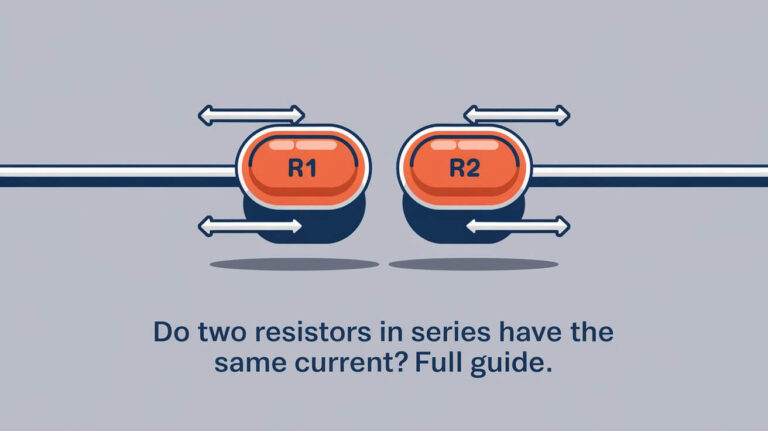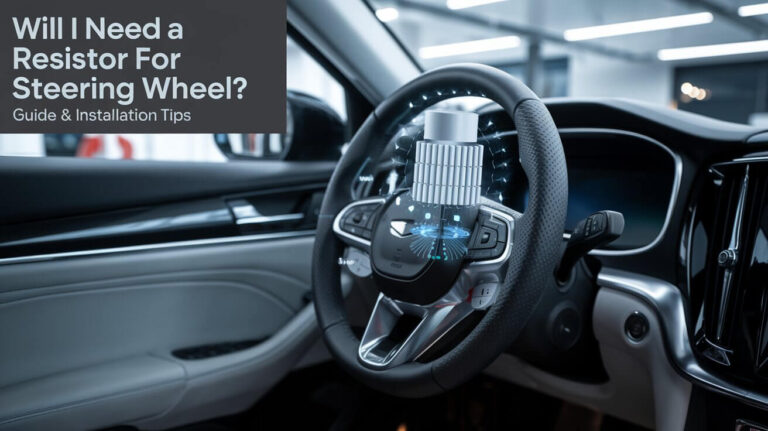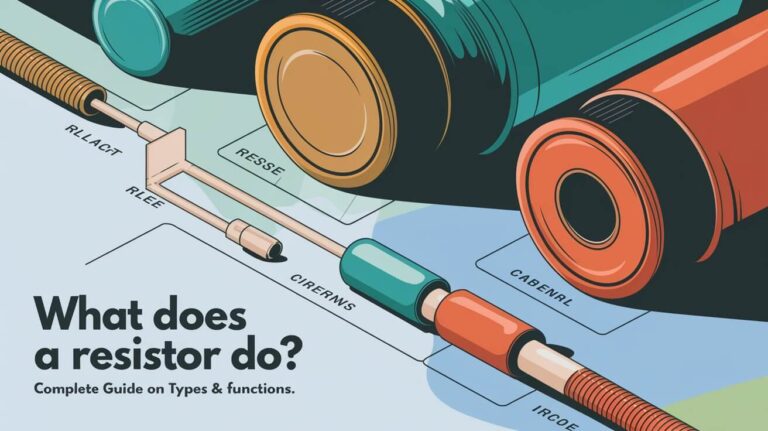How to Replace Fan Resistor in 2006 Volkswagen Jetta 2.5

The fan resistor in a 2006 Volkswagen Jetta 2.5 controls the speeds of the blower motor, an essential part of your vehicle’s heating, ventilation, and air conditioning (HVAC) system. A faulty fan resistor can lead to inconsistent fan speeds or even a completely non-functional fan. Replacing the fan resistor in your Jetta is a straightforward process you can manage yourself with the right tools and this comprehensive guide. Here’s everything you need to know about replacing the fan resistor, from understanding its role to step-by-step instructions for a smooth replacement.
What is a Fan Resistor, and Why is It Important?
The fan resistor is a small but essential part that controls the speed of your vehicle’s blower fan. Located within the HVAC system, the fan resistor regulates the amount of electrical current flowing to the fan motor, which directly affects the fan speed. A broken fan resistor usually results in limited speed settings, such as a blower fan only operating on the highest or lowest setting. Addressing fan resistor issues early can prevent further HVAC problems and ensure the cabin temperature remains comfortable.
Signs Your 2006 Jetta’s Fan Resistor Needs Replacement
Recognizing when the fan resistor needs replacement can save you from the discomfort of a malfunctioning blower fan. Here are some key symptoms:
- Limited Fan Speeds: If your fan operates only at certain speeds, it’s likely due to a failing resistor.
- Fan Only Works on High Setting: This is a common symptom of a resistor problem, as the highest setting bypasses the resistor.
- No Fan Operation: In severe cases, a broken resistor can prevent the fan from working altogether.
Preparing for Replacement
Tools and Parts Needed
Before beginning the repair, gather the necessary tools and components:
- Replacement fan resistor compatible with a 2006 Volkswagen Jetta 2.5
- Screwdrivers (Phillips and flathead)
- Socket wrench set
- Multimeter (optional, for testing)
- Safety gloves
Safety Precautions
Working on electrical components in your car requires safety precautions. Here are a few essentials to keep in mind:
- Disconnect the Battery: Always disconnect the vehicle’s battery to prevent electrical shock.
- Ensure a Cool Engine: Avoid working on the fan motor and resistor if the engine or HVAC system has been recently used to prevent burns.
Locating the Fan Resistor in a 2006 VW Jetta
To replace the fan resistor, you first need to locate it within the vehicle’s HVAC system. In the 2006 Jetta, the fan resistor is typically located under the dashboard on the passenger side, near the blower motor.
- Access the Passenger Side Dashboard: The blower motor is located under the passenger-side dashboard. For some models, you may need to remove the glove box for easier access.
- Identify the Resistor Module: The fan resistor is a small rectangular module with electrical connectors attached. It’s usually mounted near the blower motor housing, with wires leading to the blower fan.
Step-by-Step Guide to Replacing the Fan Resistor
Disconnect the Battery
- Start by turning off the ignition and removing the key.
- Open the vehicle’s hood and disconnect the negative terminal of the battery. This step ensures there’s no risk of electric shock while working on the HVAC system.
Access the Blower Motor and Resistor
- Remove the Glove Box (if necessary): For some 2006 Jetta models, the glove compartment may need to be removed to access the blower motor and resistor.
- Use a screwdriver to remove any screws holding the glove box in place.
- Gently pull the glove box out to reveal the area behind it.
- Locate the Blower Motor and Resistor: The resistor is typically positioned near the blower motor, easily identifiable by its wiring connections.
Remove the Old Fan Resistor
- Disconnect the Electrical Connector: Carefully detach the electrical connector from the fan resistor. You may need to press a release tab to loosen it.
- Unscrew the Resistor Module: Use a screwdriver or socket wrench to remove any screws securing the resistor in place.
- Extract the Old Resistor: Gently pull out the resistor module once it’s unscrewed. Note its orientation for easier installation of the new resistor.
Install the New Fan Resistor
- Position the New Resistor: Align the new resistor with the mounting holes and insert it in the same orientation as the old one.
- Secure the Resistor: Use the screws you removed earlier to secure the new resistor in place.
- Reconnect the Electrical Connector: Attach the electrical connector to the new resistor, ensuring a snug fit.
Reinstall Any Removed Components
If you removed the glove box or other parts, reinstall them by following the disassembly steps in reverse order.
Testing the Blower Motor and Resistor
Once the new resistor is installed, it’s time to test the blower motor’s functionality.
- Reconnect the Battery: Reattach the negative battery terminal.
- Test Fan Speeds: Start the vehicle and cycle through all the fan speeds to verify that each setting is working properly. If the fan operates smoothly across all speeds, the resistor replacement was successful.
Troubleshooting Common Issues
If the fan speeds are still not working correctly after replacing the resistor, consider the following troubleshooting steps:
- Check Fuses: Inspect the fuses related to the HVAC system. Replace any blown fuses.
- Examine Wiring Connections: Loose or corroded wiring can affect the resistor’s functionality.
- Inspect the Blower Motor: If the resistor replacement didn’t resolve the issue, the blower motor itself may be faulty.
Maintaining Your Jetta’s HVAC System
Preventative maintenance can prolong the life of your fan resistor and blower motor, ensuring a comfortable cabin environment.
Regular Maintenance Tips
- Replace the Cabin Air Filter: A clogged filter forces the blower motor to work harder, increasing wear on the resistor. Change the cabin filter every 12,000–15,000 miles.
- Inspect Electrical Connections: Periodically check for loose or corroded wires near the resistor and blower motor.
- Keep the Air Vents Clean: Blocked air vents can strain the blower system. Clean the vents to ensure smooth airflow.
Seasonal Inspection
Consider performing a quick HVAC system inspection at the beginning of each season, especially if you live in an area with extreme temperature fluctuations. This can help you catch small issues early and ensure that the system operates efficiently.
Frequently Asked Questions (FAQ)
What causes a fan resistor to fail?
Fan resistors often fail due to overheating from continuous use, especially if the blower fan runs at high speeds for extended periods. Accumulated dust and debris in the HVAC system can also trap heat, accelerating wear on the resistor.
How long does it take to replace the fan resistor in a 2006 Jetta?
Replacing the fan resistor typically takes about 30–45 minutes, depending on your familiarity with the HVAC system and any obstacles, like the glove compartment, that may need removal.
Can I drive without a working fan resistor?
While driving with a broken fan resistor won’t directly impact vehicle performance, you may lose control over fan speeds, leading to poor ventilation. Prolonged use without repair could strain other HVAC components, potentially increasing repair costs.
What other parts might fail if the fan resistor is not replaced promptly?
A faulty fan resistor can indirectly affect the blower motor, causing it to work harder or operate on limited speeds. If left unresolved, the blower motor may eventually fail due to the added strain.
Conclusion
Replacing the fan resistor in your 2006 Volkswagen Jetta 2.5 can restore full control over your HVAC fan speeds, ensuring a comfortable cabin regardless of the weather. Regular maintenance, like changing the cabin air filter and checking electrical connections, can help extend the life of both the fan resistor and blower motor. By following the steps outlined above, you can confidently replace the resistor and maintain optimal performance in your vehicle’s climate control system.
For consistent performance, prioritize routine checks and address small issues promptly to keep your Jetta’s HVAC system in top condition.




